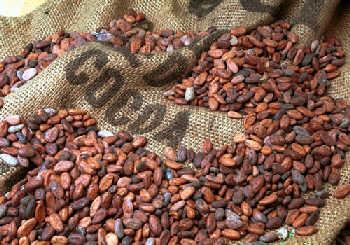Clear up all your misunderstandings about coffee. Enjoy healthy coffee time.
As more and more coffee drinks and cafes appear in daily life, Chinese people's enthusiasm for coffee seems to be rising slowly, but when many people mention "caffeine", they always feel that refreshing drinks must be bad for their health.

Is coffee harmful to health? How to drink to get more health benefits? In the face of a lot of right and wrong about coffee, Life Times synthesizes a number of studies at home and abroad and interviews relevant experts to find the answer for you.
Interviewed experts
Fu Changming, Secretary-General of Hainan Coffee Association
Ma Guansheng, Professor, Department of Nutrition and Food Hygiene, School of Public Health, Peking University
Why coffee is so controversial
Many people think that drinking coffee is a kind of evil "enjoyment", one of the reasons is that coffee contains a lot of caffeine, drinking too much can easily lead to increased heart rate, sleep disorders, nausea and vomiting, elevated blood pressure and other uncomfortable symptoms, but also may cause poisoning.
In this regard, Fu Changming explained that the premise that caffeine will cause harm to the human body is "excessive". Coffee contains more than 200 substances, in addition to caffeine, there are protein, fat, nicotinic acid, tannic acid, alkaloids, potassium, dietary fiber and other nutrients. Therefore, it is wrong to equate coffee with caffeine.
Caffeine content is also closely related to the variety of coffee beans. At present, there are two major coffee tree species in the world, Arabica and Robsta coffee beans. The former is of the best quality and the most widely planted, with a caffeine content of about 1% to 1.7%, nearly double that of the latter. Most of the instant coffee sold on the market uses robusta beans.
Another controversial focus of ↑ coffee is "addiction".
British research has found that caffeine is an irritant to the central nervous system. Drinking coffee regularly may lead to mild dependence. If you don't drink it suddenly, you will have headaches, fatigue, anxiety and lack of concentration. But these symptoms disappear after a few days and are not as dangerous as other drugs and do no harm to physical and mental health.
↑ coffee is also accused of being "high in calories".
This is actually a mess of instant coffee. "strictly speaking, instant coffee is basically not coffee, its coffee content is low, there are many additives, 17 grams of instant coffee only 2 grams of coffee powder. The worst coffee beans are used to make instant coffee. The cost is very low, and people in the industry seldom drink it. " Fu Changming said.
A reporter from the Life Times looked through the composition table of a brand of instant coffee and found that there were plant fat, fat and carbohydrates, while plant fat powder contained trans fatty acids, which was bad for health.
Coffee is also believed to be the culprit of bone loss in ↑.
However, Professor Hu Dayi, a famous cardiovascular expert in China, co-authored a book "101 reasons for Coffee innocence" with former World Heart Federation President Mario Marao and other experts. The human body contains about 1100 grams of calcium, 99% of which is deposited in bones and teeth, so the amount of bone calcium is not reduced by drinking coffee as a diuretic.
But among the many troubles caused by coffee, it should be noted that coffee can cause sleep disorders. The study found that the stimulating effect of caffeine can last for six hours, and drinking in the afternoon can also affect the quality of sleep at night.
Pure coffee has many health benefits.
"what we usually mean by coffee is pure coffee, which means coffee without any other substances." Fu Changming said that it is very low in calories and contains a variety of nutrients, so drinking in moderation is good for your health.
1 reduce the risk of cancer.
A study published in the American Journal of Clinical Gastroenterology and Hepatology found that drinking coffee every day reduced the risk of primary liver cancer, the most common form of liver cancer, by 40%. Other studies have said that drinking coffee regularly can reduce the risk of ovarian cancer in women.
2Enhancement of memory.
Dr. Jack Lin London, senior dietitian at Mount Sinai Hospital in New York, USA, said that moderate consumption of caffeine is good for both short-term and long-term memory, helping to prevent cognitive decline.
3Protective function of cardiovascular system.
South Korean researchers studied 25000 subjects and found that people who drank 3 to 5 cups of coffee a day had a lower risk of cardiovascular disease. People who drink one cup of coffee a day have a lower risk of death from stroke than those who don't drink coffee, according to a study by the National Cancer Research Center of Japan.
4Prevention of diabetes.
A study of 126000 people by Harvard University in the United States shows that coffee drinkers have a lower risk of developing type 2 diabetes.
5 contributes to longevity.
An academic paper published by a professor of pediatrics at Indiana Medical University in the United States shows that people who insist on drinking coffee have a lower mortality rate than ordinary people. Fu Changming also said that Chengmai County, the hometown of longevity in Hainan, is rich in coffee, and the average life expectancy is 77.79 years, 6.59 years longer than the national average. All the long-lived people here have the habit of drinking pure coffee. In addition, Dr. Frank Hu, a professor of nutrition and epidemiology at the Harvard School of Public Health in the United States, also found in the study of coffee that drinking coffee can reduce the risk of fatty liver and reduce the risk of suicide by 50%. At the same time, it also promotes digestion and prevents constipation.
Enjoy healthy coffee time
The health benefits of coffee can play a greater role only if you drink it correctly. Do the following in order to enjoy coffee healthily.
1 choose plain coffee.
If you make it at home, you can buy coffee beans for fresh grinding, or buy coffee powder directly and brew it in hot water. Fu Changming pointed out that 15ml or 18ml water per gram of coffee powder is the best brewing ratio, and people who are not used to drinking pure coffee can put less coffee and more water to adapt gradually. If it is difficult to adapt, Ma Guansheng suggests that you can add less sugar or fresh milk, but do not add cream to avoid offsetting the original benefits of coffee.
Hanging-ear coffee is also a good choice. Capsule coffee is also popular now. It grinds the beans and puts them in a capsule of special material, which can be brewed directly into hot water. It is as simple as a tea bag. It is also known as "office coffee" because it saves time. Fu Changming said: this is a trend of future development.
If you drink coffee in a cafe, you'd better choose American coffee without cream and sugar.
No more than 3 cups a day.
People's tolerance for coffee varies from person to person. After studying caffeine in the Dietary guidelines for American residents, healthy people drink 3 to 5 cups of coffee a day as part of a healthy diet. Many domestic experts suggest that it is best not to exceed 3 cups a day (about 200 milliliters per cup).
Morning is the best time.
Neuroscientists in the United States have calculated that the best time to drink coffee every day is at 9: 30 in the morning. This is because caffeine interacts with cortisol, an important hormone in the body, to reach its optimal state during this period of time.
It should be reminded that it is best not to drink coffee on an empty stomach or after dinner, so as not to affect the quality of sleep.
(4) special people should pay attention to it.
According to a number of British and American studies, pregnant women should reduce their coffee intake by no more than 2 cups a day, while people with high blood pressure should pay attention to the time they drink coffee and try not to get up early in the morning to avoid a rapid rise in blood pressure.
Important Notice :
前街咖啡 FrontStreet Coffee has moved to new addredd:
FrontStreet Coffee Address: 315,Donghua East Road,GuangZhou
Tel:020 38364473
- Prev

Drinking coffee in the morning can easily lead to nervousness.
Do you get up in the morning and grab a cup of coffee and read text messages on your phone? If you don't believe what the editor said, this must be one of the worst habits to get numb in the morning. Developing such a bad habit is not good for your health. (1) getting up early in the morning to drink coffee according to Stephen Milan of the American University of Health Sciences, drinking coffee immediately after getting up can easily lead to excess energy, and people will also change.
- Next

Skin care coffee beauty formula
Coffee refreshes the sleepy morning and makes people relaxed and happy with its unique stimulation of taste and smell. At the same time, coffee is also a beauty artifact for skin and hair. Explore the mysteries of coffee beauty and make your skin and hair glow. Coffee beauty formula, it is not difficult to do it yourself. Caffeine, as the most important ingredient in coffee, can promote lymphatic circulation. In addition, coffee also contains
Related
- Beginners will see the "Coffee pull flower" guide!
- What is the difference between ice blog purified milk and ordinary milk coffee?
- Why is the Philippines the largest producer of crops in Liberia?
- For coffee extraction, should the fine powder be retained?
- How does extracted espresso fill pressed powder? How much strength does it take to press the powder?
- How to make jasmine cold extract coffee? Is the jasmine + latte good?
- Will this little toy really make the coffee taste better? How does Lily Drip affect coffee extraction?
- Will the action of slapping the filter cup also affect coffee extraction?
- What's the difference between powder-to-water ratio and powder-to-liquid ratio?
- What is the Ethiopian local species? What does it have to do with Heirloom native species?

